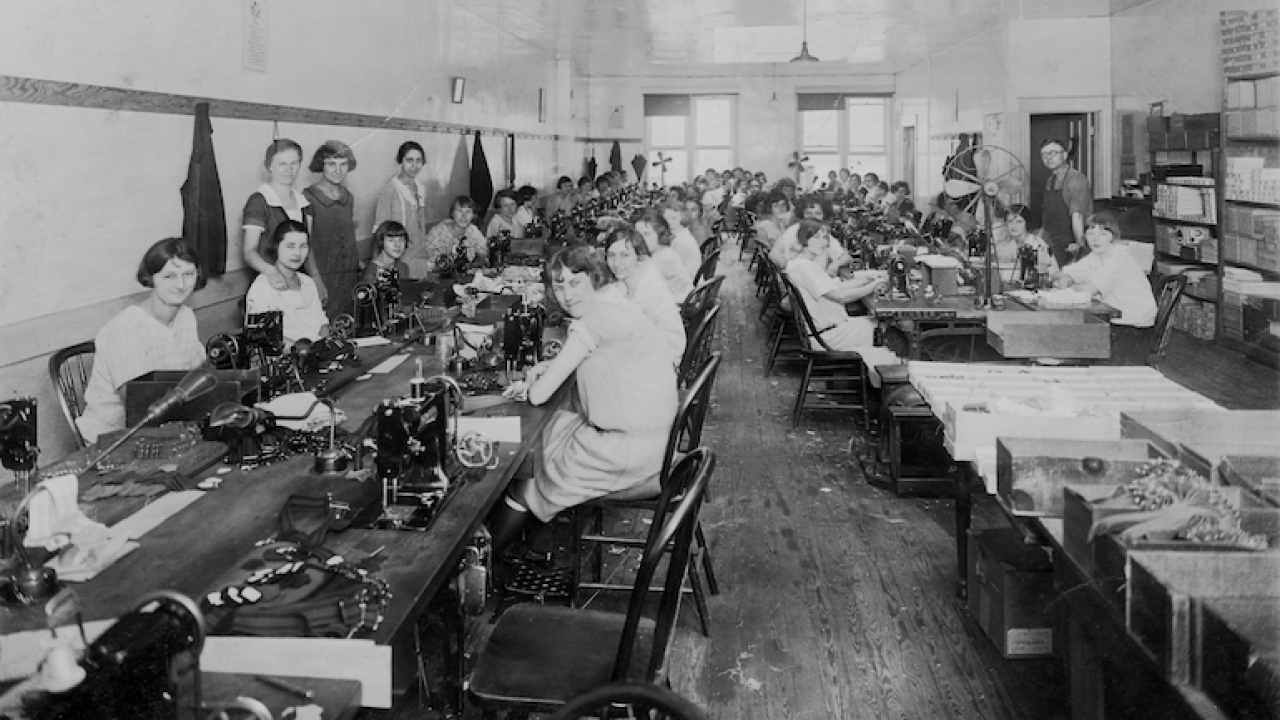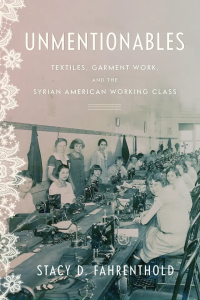
Protesters in recent back-to-back strikes, from the U.S. Port to Boeing, still practice many of the same tactics that worked in the 1900s when protesters back then hit picket lines and built strike kitchens. But the origins of these types of protests are often overlooked.
“Arab Americans contributed to strike practices we see as quintessentially American,” said Stacy Fahrenthold, associate professor of history in the College of Letters and Science at UC Davis.
In her book, Unmentionables: Textiles, Garment Work, and the Syrian American Working Class, Fahrenthold unravels the history of Lebanese, Syrian and Palestinian immigrants’ activism in the global textile industry and labor strikes. Her book reveals how women garment workers, child laborers and union activists struggled against white and even Arab American bosses, as well as why their impact has gone ignored.
Conditions in textile factories

Before 1912, Arab Americans worked under harsh, inhumane conditions in textile factories with no minimum wage or child labor laws. They also faced racial discrimination as white workers were prioritized for higher-paid jobs. These workers grappled with shop bosses who were not only from outside their ethnic community, but also from within it.
“It wasn’t a situation where Arab Americans were contending with only white American bosses,” said Fahrenthold. “The Arab American community also had an emerging capitalist class. As factory heads, Arab American merchant capitalists tried to espouse working in the Arab American community as a form of industrial patriotism.”
The bosses claimed a right to Syrian women and girls' labor, arguing they had an obligation to work for Arab American employers exclusively.
“When these women and girls went on strike, their labor activism was seen as a disloyalty against the ethnic community,” Fahrenthold said.
The fight for their rights
In the Bread and Roses strike of 1912 in Lawrence, Massachusetts, Syrian, Lebanese and Palestinian workers joined the protests as members of the American working class. While Italian American workers began the picket line tradition, it was Syrian workers, many of them women and mothers, who upheld the line.
“A practice that comes from the Arab American experience is the strike kitchen,” said Fahrenthold. “If they were going to be on the picket lines marching all day and into the night. There needed to be a place to corral the children and feed them.”
The Lawrence strike kitchen, for instance, offered Lebanese dishes like kibbeh and rice in yogurt.
Strike kitchens fueled workers' bellies and determination. When strikers were well fed, they were more likely to stay on the picket line. This practice and many others created by Arab Americans became traditions essential to American labor protests.
Why ‘Unmentionables’?
At the time, the U.S. government placed strict surveillance on Arab American workers, accusing them of spreading “anti-American” politics.
“There was worry in the Arab American community about how closely American activists were seeking to tie their community to radicalism,” Fahrenthold said.
If workers spoke out against their bosses, they would become targets for physical violence and even deportation. To protect their community, Arab Americans had to stay silent about their activism. As such, there are very few records about their activities.
“Arab American activists played a significant role but they hadn’t been acknowledged by history because they had to evade the lime-light,” said Fahrenthold. “This book was animated by a desire to capture the histories of workers and people who organized as part of the labor movement.”
Fahrenthold will discuss her book at an upcoming seminar with the UC Davis Law Aoki Center for Critical Race and Nation Studies at King Hall 1301, November 21, 2024 from 12-1pm.
